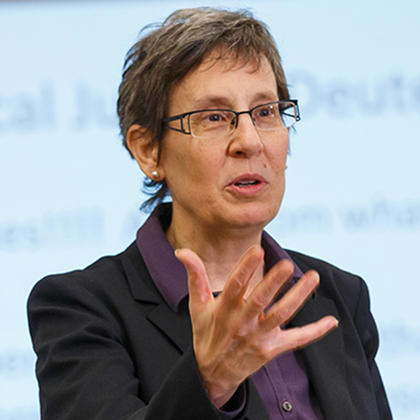Podcast: Play in new window | Download
Subscribe: Spotify | Email | RSS

In this second conversation with Dr. Jo-Ann Brant, author of a unique commentary on the Gospel According to John, we discuss a number of topics, including:
- the famous and difficult prologue of the fourth gospel
- why John the Baptist is so prominently mentioned there
- Jesus’s divine authority
- his subordination to God in this book
- Jesus as God’s agent
- Jesus’s faithful obedience
- whether or not John presents Jesus as God himself
- the idea of “kenosis” in some Incarnation theories
- and two-self understandings of Incarnation.
Thanks to Dr. Brant for these stimulating conversations.

Links for this episode:
- Proverbs 8:22-31; Psalm 33:6; Genesis 1:1-3; Mark 1:1; John 5:19-20; John 5:31-32; John 6:36; John 8:38; John 4:1-42; John 1:18; John 17:1-3; John 20:17; John 20:28; John 8:58; John 11:33; John 4:6; Philippians 2:5-11; Romans 1:16.
- Dr. Brant’s homepage
- John (Paideia: Commentaries on the New Testament
- Dialogue and Drama: Elements of Greek Tragedy in the Fourth Gospel
- podcast 289 – “Socinian” approaches to John 1 – Part 2
- podcast 288 – “Socinian” approaches to John 1 – Part 1
- podcast 287 – Dr. Andrew Perry on John 1
- podcast 291 – From one God to two gods to three “Gods” – John 1 and early Christian theologies
- The Gospel of John: A Theological Commentary
- a reading of Philippians 2:5-11
- podcast 144 – Dr. Timothy Pawl’s In Defense of Conciliar Christology – Part 2
- podcast 143 – Dr. Timothy Pawl’s In Defense of Conciliar Christology – Part 1
- Clarifying Catholic Christologies
- podcast 146 – Jesus as an Exemplar of Faith in the New Testament
- Larry Hurtado on early Christians’ worship of Jesus
- podcast 229 – Buzzard and Hurtado on God and Jesus – Part 2
- podcast 228 – Buzzard and Hurtado on God and Jesus – Part 1
- This week’s thinking music is “Monarch of the Street” by Loyalty Freak Music.

Dale (or any reader of this blog site),
Could you recommend a commentary on the Gospel of John that would reflect a biblical unitarian perspective on the Logos? It would be most helpful. I appreciate your scholarship and the service you render to people who seek greater understanding. Many thanks!
I listened to the two interview discussions with Dr. Joanne Brandt on the Gospel of John.
A few reactions:
She seems a nice lady. I thought some of the things she said were insightful, other things conflicting.
A few comments on the insightful side:
• she realizes that John is describing a Jesus who is equal with the Father in work, not in ontologically or in essence, i.e., in what Jesus does, he is doing the work of the Father.
• She describes why John doesn’t have to call Jesus the word/logos again through the rest of the Gospel. By the time one gets done reading the first 18 verses, the reader knows Jesus is the word/logos.
• John was written so that people would trust. God willing, I’ll say more about this in the next One God Report podcast, and how this purpose fits into the 1st century historical context.
On the conflicting side:
• While she says that John is not interested in and not presenting an equal ontological essence of Jesus and God (the Father), she still talks about the “high Christology” of John, that Jesus is God (at one point she says in the one sentence, “Jesus is the same essence, the same person as God” (what?).
• She has heard of the new beginning, new creation view of John’s prologue (and thereby the whole Gospel). She said in connection to what Dale calls the “so-called Socinian view” that she doesn’t want to eliminate any possible interpretation. But you can understand why I had to chuckle when she (and Dale) wrestle with why oh why John had to bring up John the Baptist in the verses 6-7 of his introduction, right smack dab in the middle of his description of some pre-creation Logos being involved in the Genesis creation of rocks, trees, animals and mankind.
• In some ways I feel sorry for someone like Dr. Brandt. She can see in the text of John who Jesus really is, but things like traditional interpretations and social pressures her from fully accepting the Jesus she sees in John. She has her, she said something like her “exegetical Jesus” and her “personal Jesus”. I’m sure it’s not really comfortable to have such a conflicting “Jesuses”.
Comments are closed.